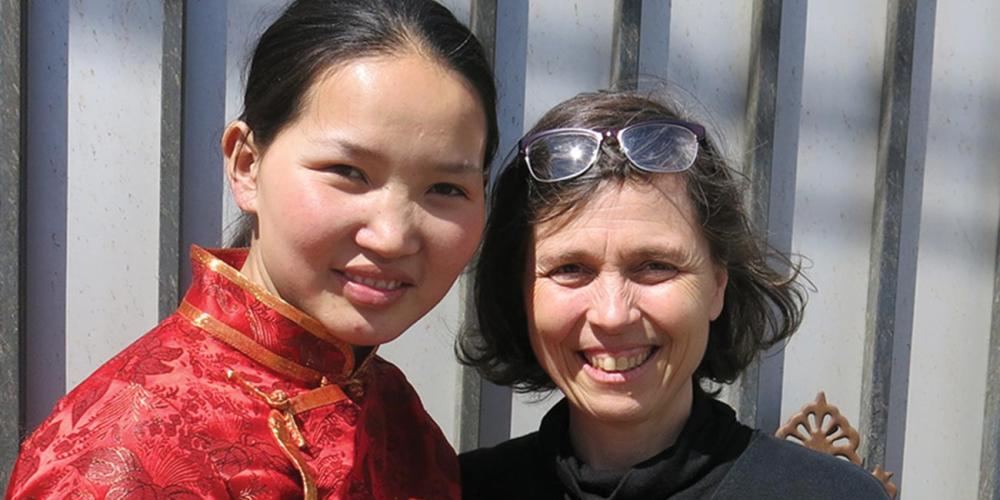Connecting With Heaven
To Sabbath School teachers: This story is for Sabbath, October 16.
Ask two people to present this interview during the mission-story time.
Narrator: Cathie and her late husband, Brad, were the first post-Communist Adventist missionaries to Mongolia when they arrived in 1991 with Adventist Frontier Missions, a supporting ministry. She still serves God in Mongolia today. Tell us, Cathie, how do you pray?
Cathie: When we arrived in Mongolia in 1991, I felt that God was calling me to be a prayer warrior. But I said to God, “I pray all the time. How am I not a prayer warrior?” I argued with God.
After my husband died, and I remarried, we moved to another Asian country for a while. I sensed God calling me again to be a prayer warrior. I relented and said, “OK, I’ll put ‘pray three times a day’ on the schedule.”
Miracles began to happen as my husband, three young daughters, and I prayed three times a day as a family. We had been looking for months for a place to live, and God provided a home. My husband and I lost our job teaching English, and God provided a new teaching position that was even better.
That was the first step where God took me in prayer. The second step came when I began to ponder Jesus’ repeated instructions to “watch and pray” in the New Testament. I wasn’t sure what He meant. I looked for passages in Ellen White’s writings about watching and praying, and I condensed them into one document. I learned that “watching” means that we are supposed to watch our emotions, watch our words, and watch whether we have an indifferent attitude.
Whenever my daughters had struggles in their early teens, I asked, “Have you watched and prayed?” Usually, they acknowledged that they had not. We set aside a prayer room in our home where each of us, three times a day, privately confessed our sins and weaknesses and asked God to replace them with a loving, humble spirit. This really helped smooth our family relationships.
Narrator: How do you read the Bible?
Cathie: After I read that church pioneer William Miller went through the Bible one verse at a time, I decided to try that, too. It was exciting to compare each verse with the original Hebrew or Greek.
Currently, I am trying to improve my Mongolian language through the Bible. With a notebook nearby, I read a verse in English and then in Mongolian. It’s a very slow process, but I try to do a chapter a day.
Reading in Mongolian has given me a new perspective because different words are used. One morning I read Deuteronomy 33:1, which in English says, “Moses, the man of God.” But in Mongolian, the description is, “God’s person Moses.” I wondered, “Can I say, ‘God’s person Cathie?’” That was all that I needed for that day.
Narrator: How do you witness?
Cathie: Laws in some countries where I’ve lived make it difficult for foreigners to share openly. But you can create opportunities for people to ask questions, and it’s perfectly acceptable to answer questions.
As an English teacher, I took class attendance by asking students to write something on a slip of paper. I took the time to respond to each note. Some students opened up their hearts.
Often, it’s simply a matter of being friendly and inviting people over to your home. People open up their hearts in one-on-one conversations. That’s why I want to improve my Mongolian.
My daily prayer echoes the words of Saul when he saw Jesus on the road to Damascus. He said, “Lord, what would You have me to do?” God reveals His will when we ask, “What would You have us to do?” in each situation every day.
Your Thirteenth Sabbath Offering this quarter will help open an Adventist lifestyle center in Mongolia’s capital, Ulaanbaatar.





